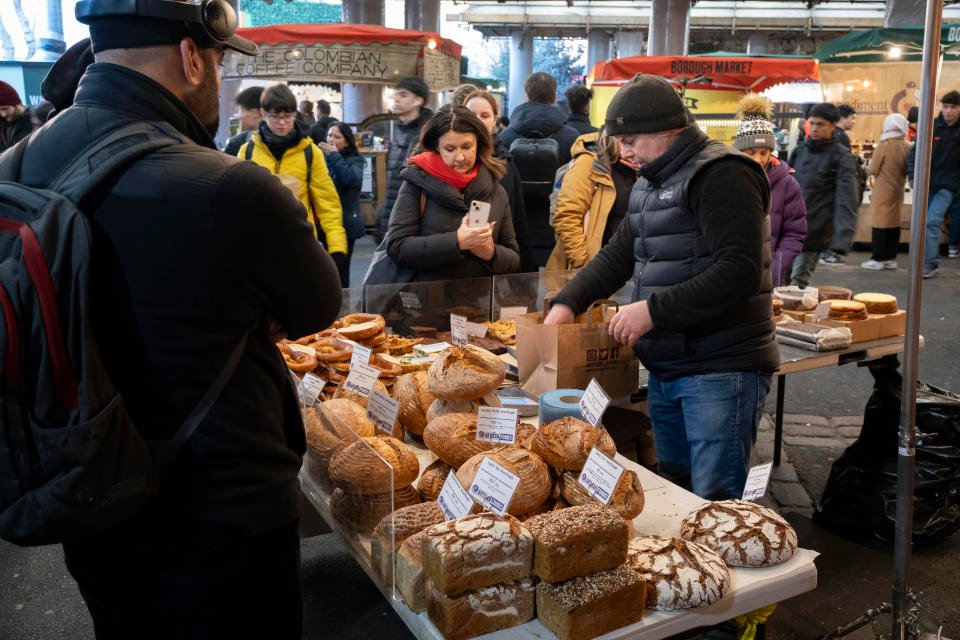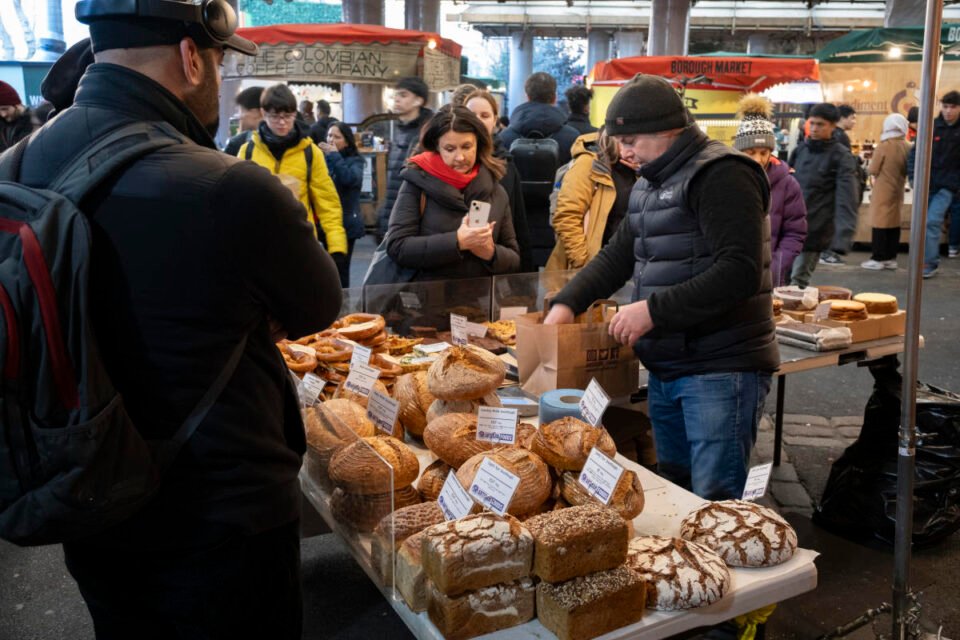
Inflation fell in February to its lowest level in two and a half years, boosting hopes that the Bank of England will cut interest rates in the summer.
The Consumer Price Index (CPI) slowed to 3.4% in February, down from January’s 4%, the lowest since September 2021, according to figures from the Office for National Statistics (ONS).
Inflation, the rate at which prices rise over time, has been gradually falling since it hit 11.1% in October 2022, its highest rate for 40 years. However, a fall in inflation doesn’t mean prices are coming down — but that they’re rising less quickly.
ONS chief economist Grant Fitzner said: “Food prices were the main driver of the fall, with prices almost unchanged this year compared to a large rise last year, while restaurant and cafe prices also slowed.”
Core CPI (which excludes energy, food, alcohol and tobacco) rose by 4.5% in the 12 months to February 2024, down from 5.1% in January.
Food inflation declined from 7% to 5%, while restaurants and hotels inflation dropped from 7% to 6%. Communication inflation dipped from 8.2% to 5.6%.
Read more: Bank of England poised to keep interest rates at 16-year high of 5.25%
Responding to the latest figures, chancellor Jeremy Hunt has said the “plan was working”.
He said inflation had “not just fallen decisively” but is “forecast to hit the 2% target within months”.
“This sets the scene for better economic conditions which could allow further progress on our ambition to boost growth and make work pay by bringing down national insurance as we work towards abolishing the double tax on work — but only if we can do so without increasing borrowing or cutting funding for public services,” he added.
The decline in inflation fuels hopes that the Bank of England will cut interest rates this the summer.
Paul Dales, chief UK economist at Capital Economics, said the consumer prices index reading of 3.4% “probably won’t make the Bank of England sound any more dovish when it leaves interest rates at 5.25% tomorrow”.
Read more: 7 actions to take before your tax-free allowances reset
But he added: “In April, we forecast CPI inflation will plunge to 1.7% (BoE 1.9%) and, more strikingly, while the Bank thinks it will rebound to 2.7% by August, we think it will fall close to 1%.
“From April, CPI inflation in the UK will be comfortably below inflation in the US and euro-zone.
“That may prompt the Bank of England to starting cutting interest rates in the summer (perhaps in June) and inflation of 1% may force it to reduce rates to 3% next year rather than to 4% as expected by investors.”
Watch: What is inflation and how does it affect you?
Download the Yahoo Finance app, available for Apple and Android.

